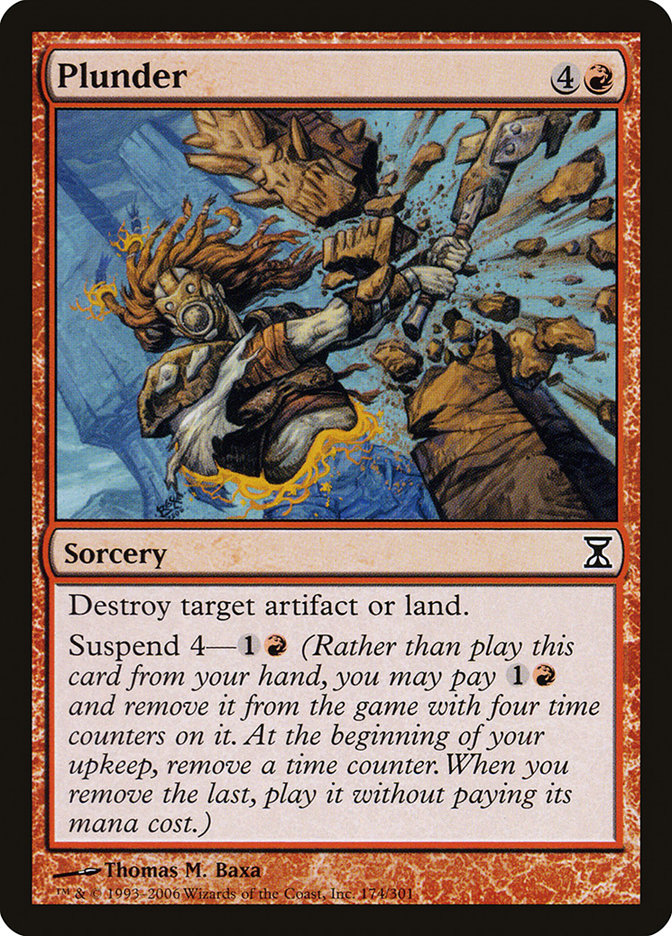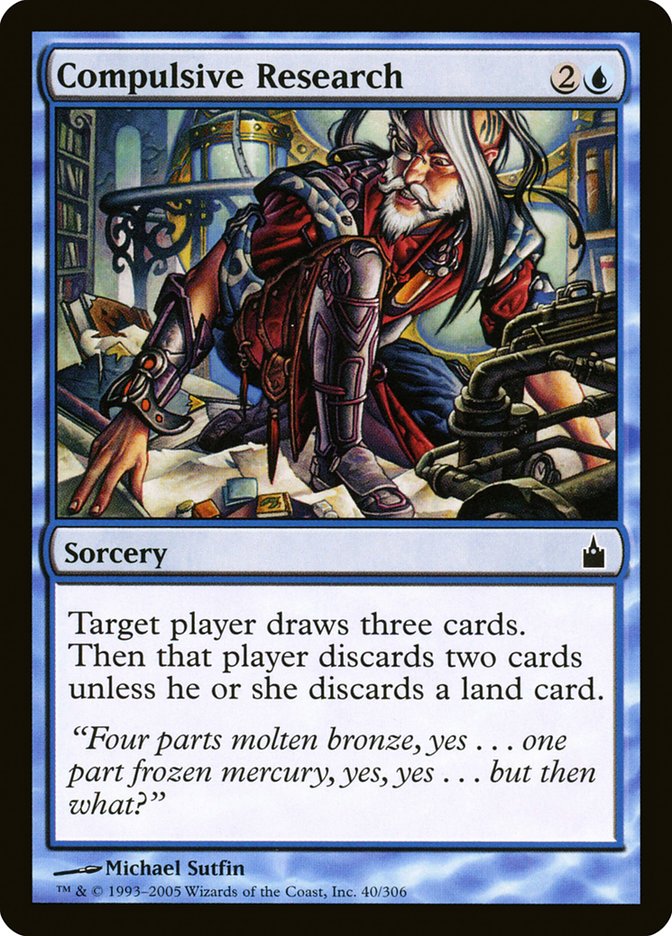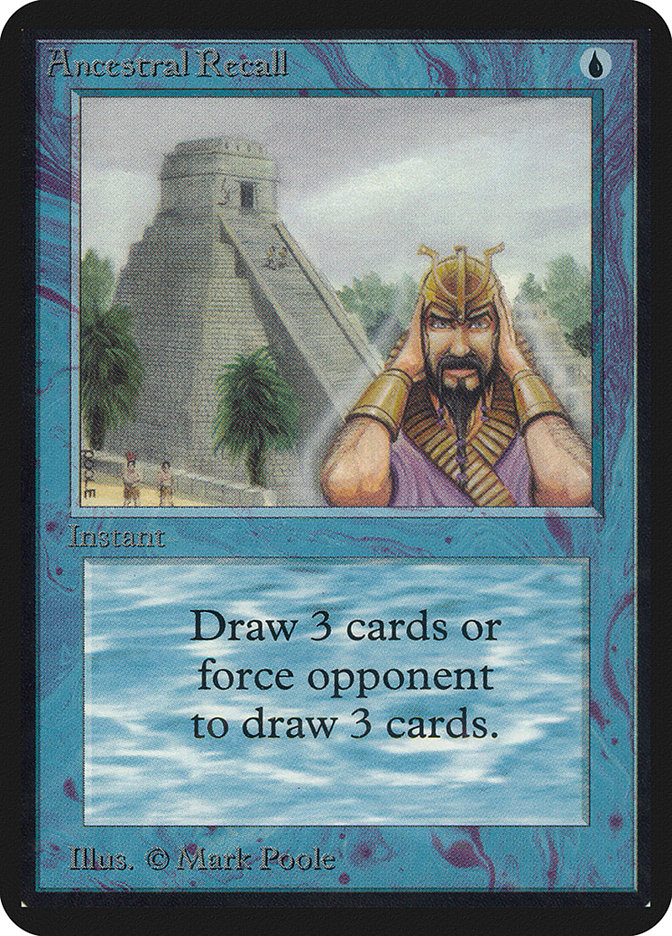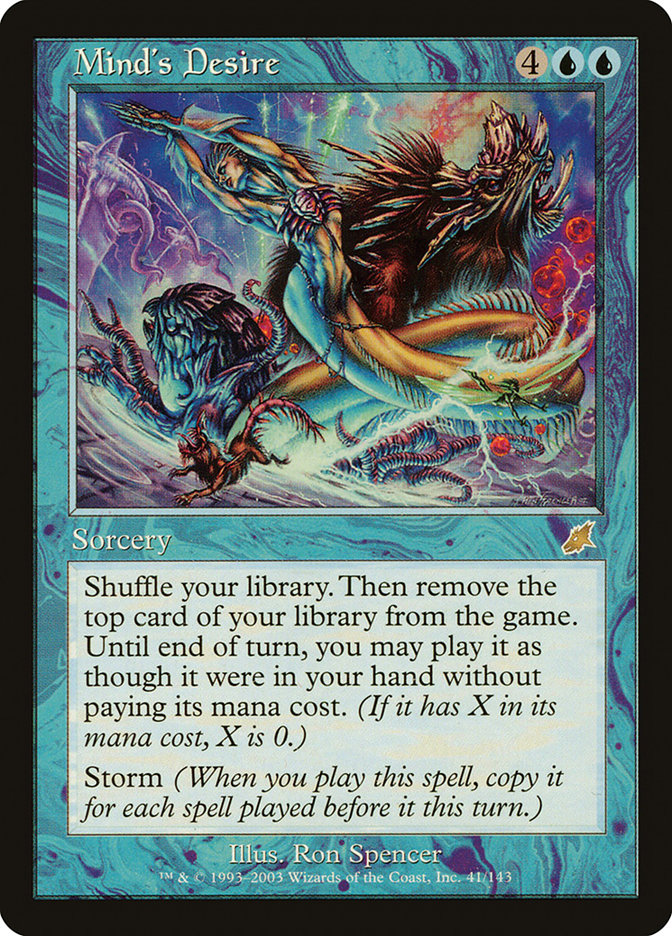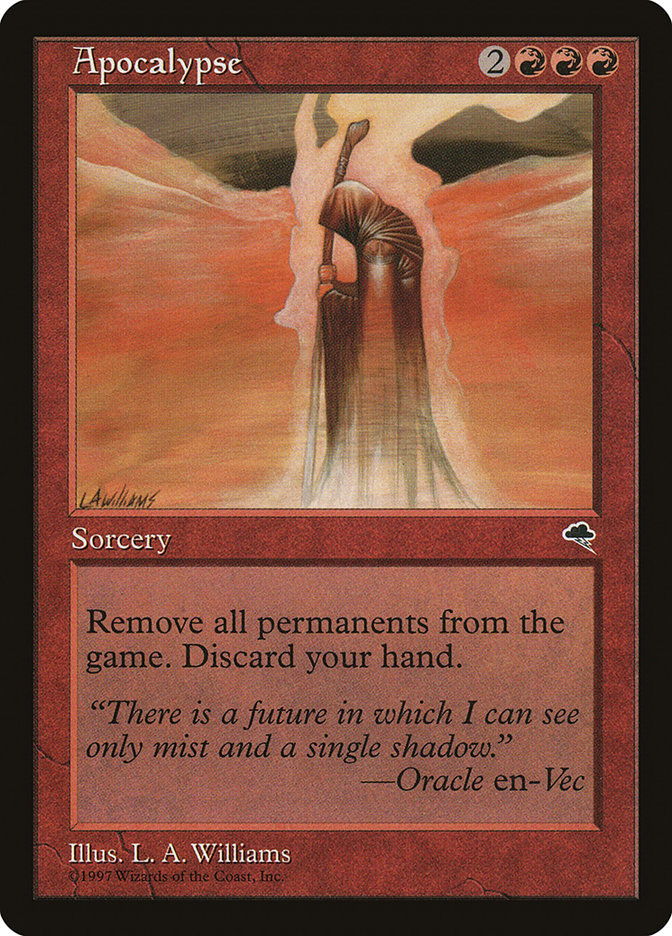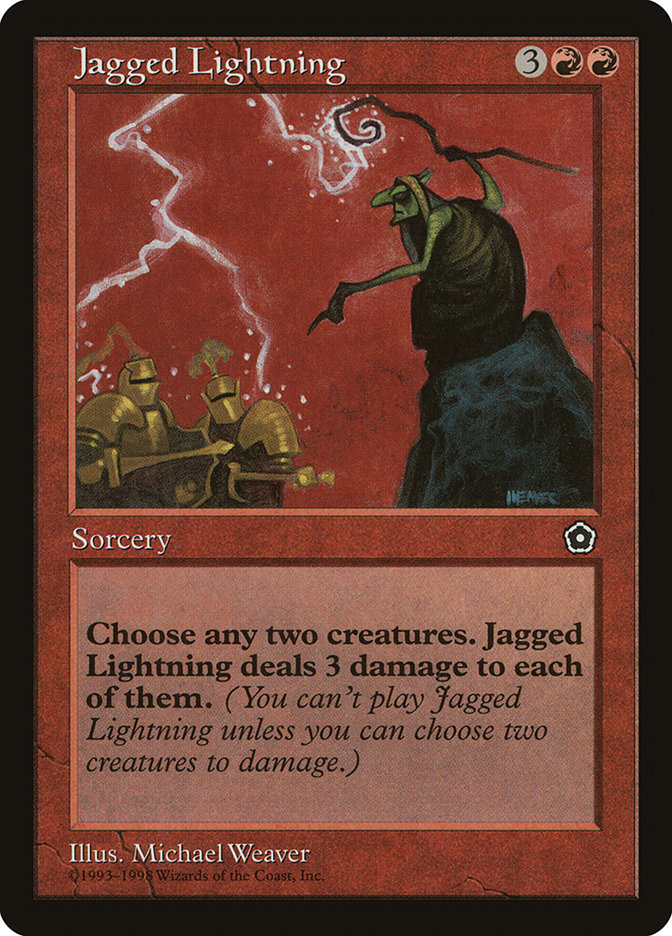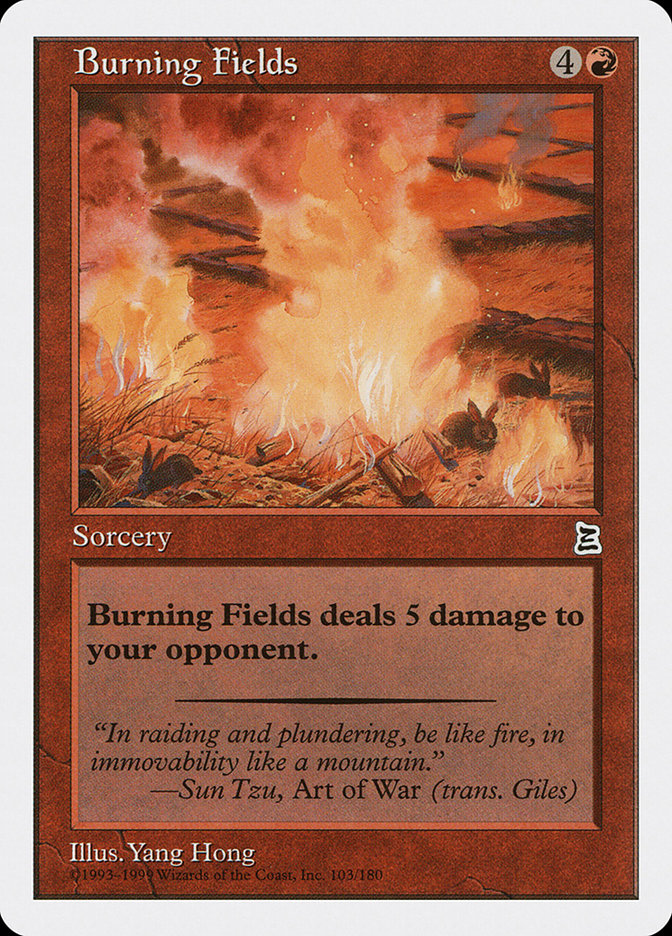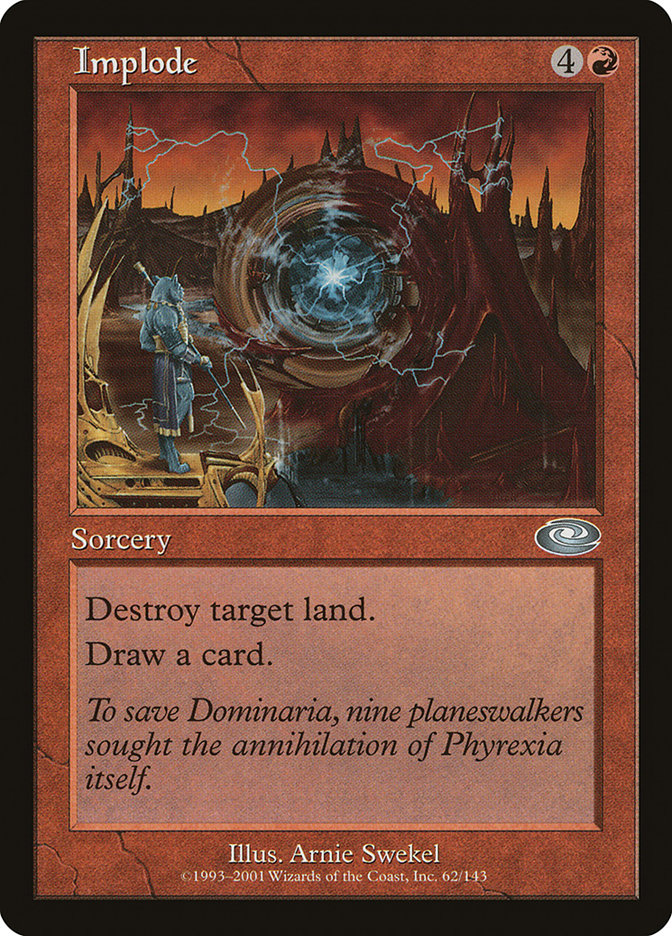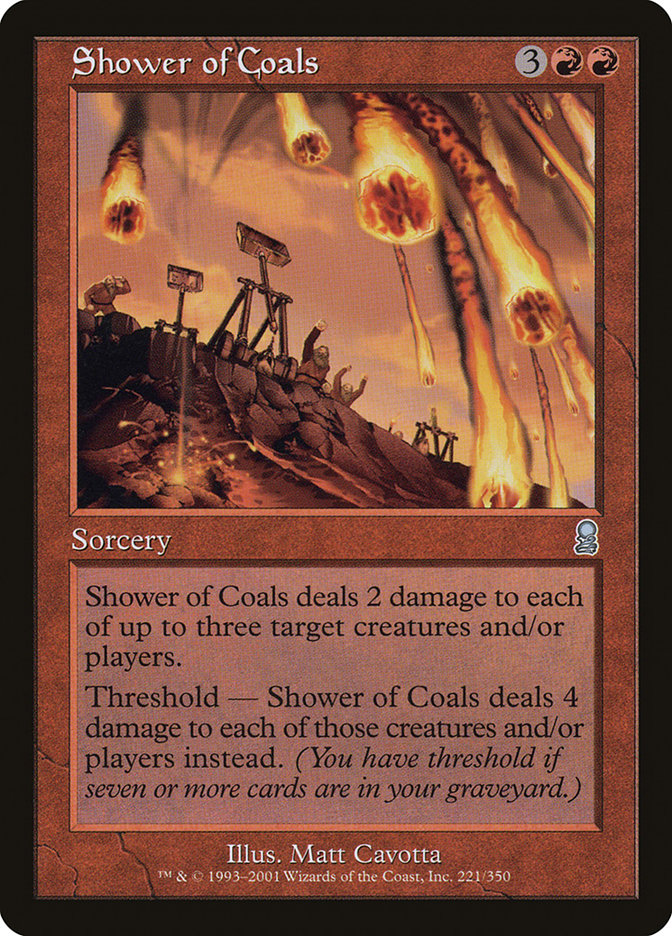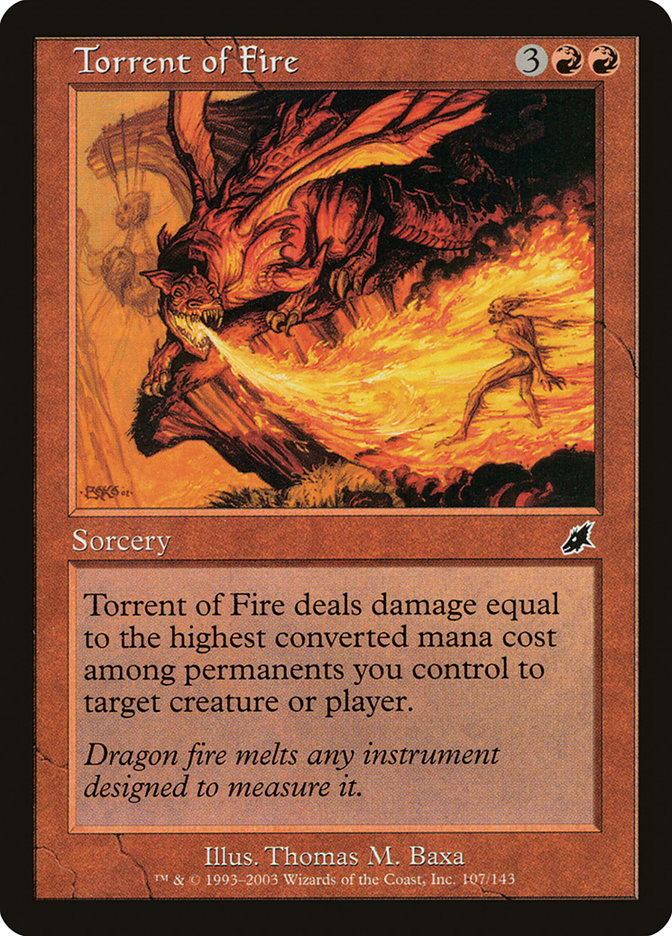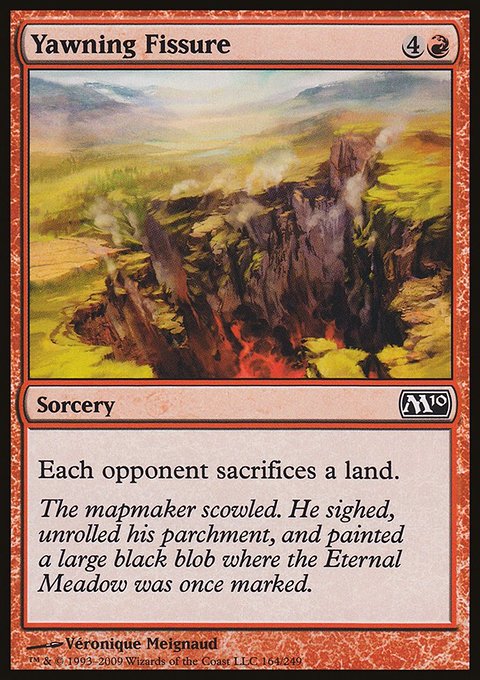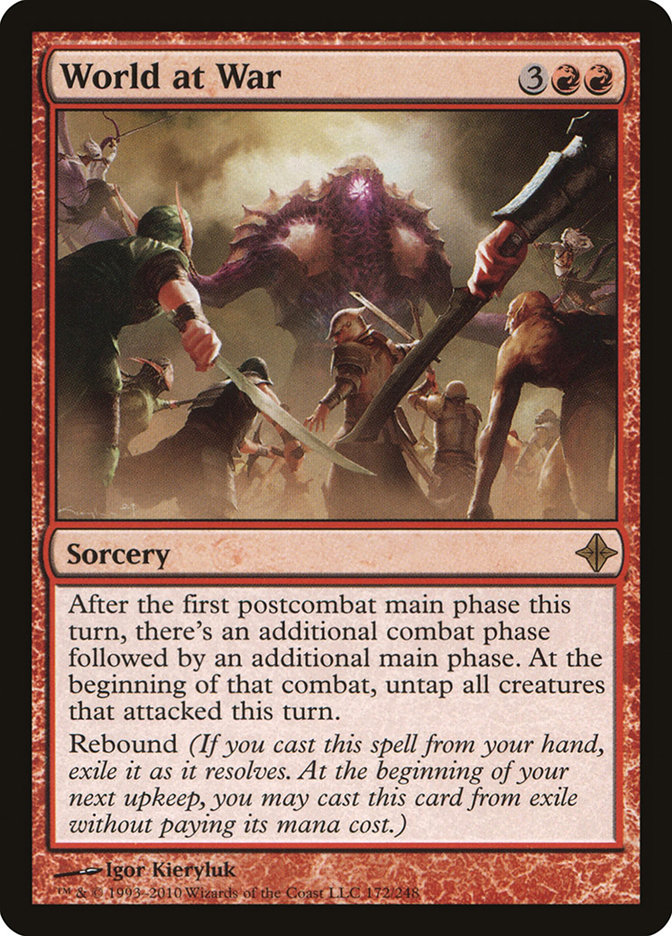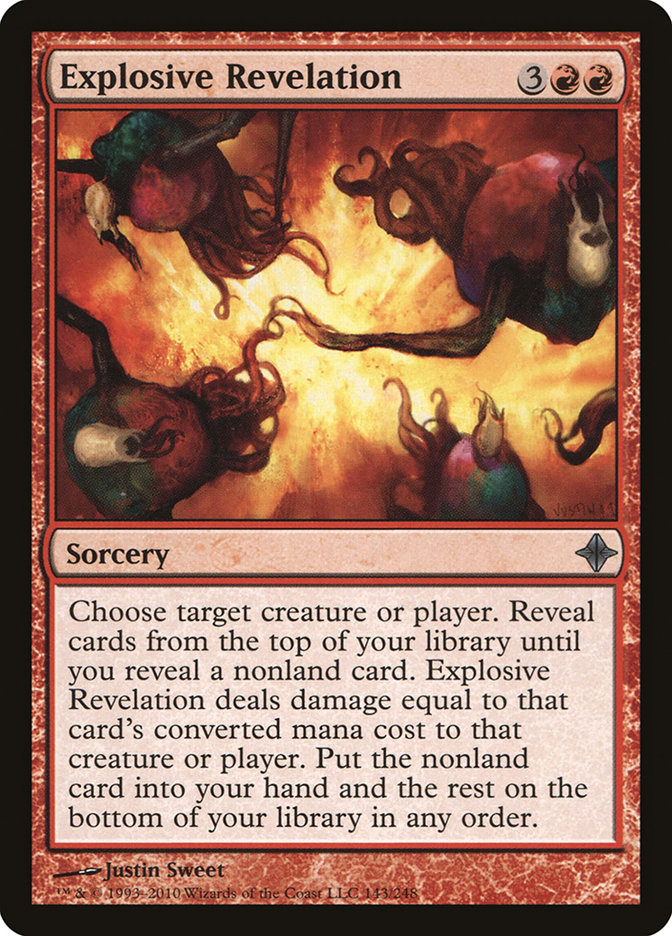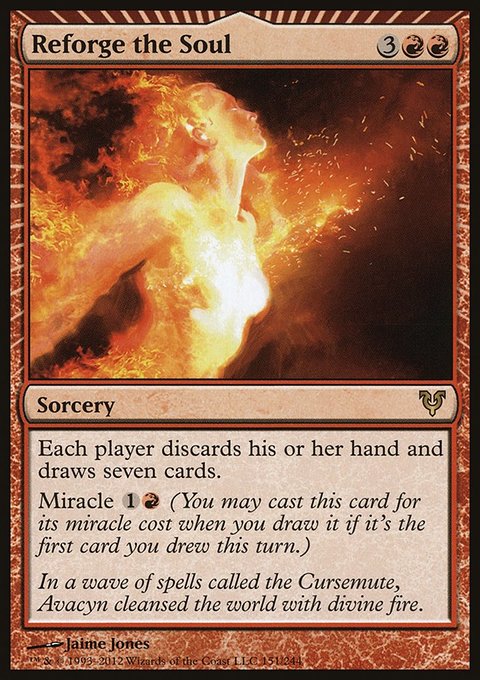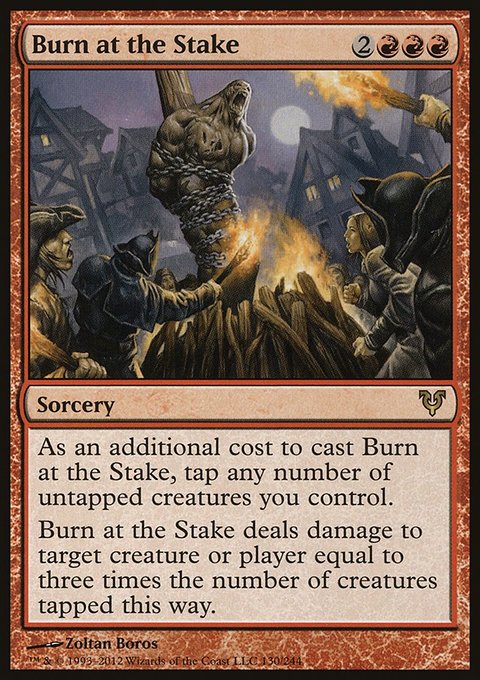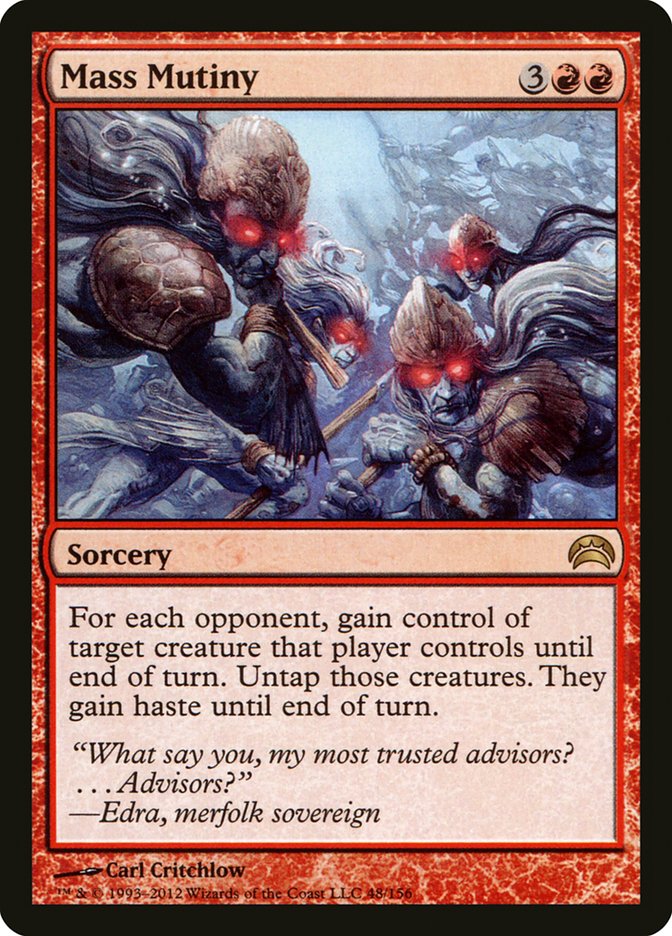Saquear Carta MTG
| El coste de maná | |
| Costo de maná convertido | 5 |
| Rareza | Común |
| Tipo | Conjuro |
| Habilidades | Suspend |
| Liberado | 2006-10-06 |
| Coleccione símbolo | |
| Coleccione nombre | Time Spiral |
| Coleccione código | TSP |
| Número | 174 |
| Frame | 2003 |
| Disposición | Normal |
| Border | Negra |
| Ilustrado por | Thomas M. Baxa |
Texto de la carta
Destruye el artefacto o tierra objetivo. Suspender 4—{1}{R} (En lugar de jugar esta carta de tu mano, puedes pagar {1}{R} y removerla del juego con cuatro contadores de tiempo sobre ella. Al comienzo de tu mantenimiento, remueve un contador de tiempo. Cuando remuevas el último, juégala sin pagar su coste de maná.)
Cartas Similares
El saqueo encuentra su lugar entre el amplio repertorio de hechizos de ventaja de cartas de Magic: The Gathering. A menudo se asemeja a cartas como Investigación compulsiva, que permite a un jugador robar tres cartas a cambio de descartar una carta o un terreno. Si bien ambos son potentes para recorrer tu mazo, Investigación compulsiva carece del potencial de saqueo para robar del mazo de un oponente, añadiendo un elemento de imprevisibilidad y estrategia.
Recuerdo ancestral es otro hechizo legendario que roba tres cartas pero sin condiciones adicionales. Si bien esta comparación puede parecer desequilibrada debido al estatus icónico y nivel de poder de Recuerdo ancestral, destaca las amplias implicaciones de juego de Saqueo en el tema compartido de robo de cartas. Saqueo no se trata solo de robar cartas; se trata de manipular los recursos de ambos jugadores, lo que lo convierte en una elección más astuta e interactiva. Anhelo de la mente es otro hechizo que juega con la biblioteca, pero baraja y juega con la carta superior de tu mazo, siendo una apuesta bastante arriesgada en comparación con el enfoque directo de Saqueo.
Al comparar estos mecanismos, podemos ver que Saqueo es un hechizo multifacético. Funciona bien para aquellos que buscan incorporar tanto la manipulación de mazos como la interferencia del oponente además del robo básico de cartas, marcando su lugar único en el panorama de ventaja de cartas de Magic: The Gathering.
Cartas similares a Saquear por color, tipo y coste de maná
Aspectos Positivos de las Cartas
Ventaja de Cartas: En el mundo acelerado de MTG, robar cartas es similar a acumular un arsenal y Plunder asegura que nunca te falten. Al proporcionar cartas adicionales, afila tu ventaja estratégica, manteniéndote bien preparado para el campo de batalla en evolución.
Aceleración de Recursos: La eficiencia es clave en el juego, y Plunder actúa como un conducto dinámico para la aceleración de recursos. La creación de fichas de Tesoro no solo te brinda un impulso espontáneo de maná, sino que también suaviza tu curva de maná, permitiendo una experiencia de juego más fluida.
Velocidad Instantánea: La flexibilidad durante el juego no puede ser subestimada, y Plunder, jugable a velocidad instantánea, ofrece justo eso. Proporciona la ventaja de adaptabilidad, permitiéndote reaccionar al movimiento de un oponente con un timing astuto o para optimizar el final de su turno, manteniéndolos en suspense.
Aspectos Negativos de las Cartas
Requisito de Descarte: Plunder incorpora un mecanismo de descarte que puede salir mal si tu mano ya está sin opciones. Al requerir que una carta sea descartada, reduces tu pool de jugadas potenciales, lo que podría obstaculizar tu estrategia más que ayudarla, especialmente en juegos más largos donde cada carta cuenta.
Costo de Maná Específico: Plunder requiere una combinación exacta de maná para ser lanzada, incluidos requisitos de colores más estrictos. Esto la hace menos flexible y podría restringir su inclusión a mazos fuertemente alineados con el color rojo o temáticos de piratas, excluyendo potencialmente una gama más amplia de tipos de mazos que de otra manera podrían beneficiarse de sus capacidades.
Costo de Maná Comparativamente Elevado: Otro aspecto a considerar es su costo de maná en relación con su impacto en el juego. Si bien Plunder puede ofrecer un beneficio único, con un costo de maná que está por encima de la curva para sus efectos, compite con una gran cantidad de otras cartas que podrían ofrecer ventajas similares o mejores por la misma inversión o inferior, limitando así su deseabilidad en un mazo afinado.
Razones para Incluir Plunder en tu Colección
Versatilidad: Plunder ofrece flexibilidad en la construcción de mazos, siendo un activo tanto en mazos agresivos como de control. Su capacidad para perturbar el robo del oponente mientras mejora el tuyo lo convierte en una herramienta versátil en varios formatos de MTG.
Potencial de Combo: La carta funciona bien con estrategias que se benefician de conocer la mano del oponente o que capitalizan en los mecanismos de descarte. Se sincroniza con efectos que se activan al oponente descartar una carta o con tácticas de reanimación para utilizar las cartas descartadas en tu beneficio.
Relevancia en el Meta: En un entorno de juego donde la información y la ventaja de cartas son primordiales, Plunder te mantiene un paso adelante. Su efectividad contra mazos que dependen de cartas específicas puede ser decisiva en partidas reñidas, haciendo que Plunder sea relevante en numerosos escenarios de metajuego.
Cómo Contrarrestar
Plunder se destaca en los reinos de MTG a través de su giro único en las mecánicas de ventaja de cartas. Distinguido de otros efectos de robo, la ventaja de Plunder viene con un requisito: primero, una criatura debe haber infligido daño de combate a un jugador. Esta condición puede ser de doble filo tanto para el usuario como para aquellos que lo enfrentan.
En el contexto de abordar Plunder, interrumpir estrategias basadas en criaturas se vuelve clave. Los hechizos de eliminación son efectivos para eliminar posibles desencadenantes de daño de combate antes de que ocurran. Barredoras como Ira de Dios o Condenación pueden reiniciar el tablero, anulando la posibilidad de que Plunder se active. Además, contrarrestar el hechizo en sí con respuestas como Contramágica o Negar antes de que entre en juego te mantiene por delante de la curva.
Otro ángulo a considerar es el control basado en criaturas, empleando cartas como Propaganda o Prisión Espectral para gravar los ataques de los oponentes, disuadiéndolos de participar en combate. Los jugadores también deben estar atentos a la interacción a velocidad instantánea, que puede evitar el desencadenante de Plunder durante el combate. Al evaluar las amenazas y desplegar las respuestas correctas, los jugadores pueden mitigar el impacto de Plunder y mantener el control sobre el juego.
Donde comprar
Si estás buscando comprar una carta MTG Saquear de un coleccione específico como Time Spiral, existen varias opciones confiables que debes considerar. Una de las fuentes principales es tu tienda de juegos local, donde a menudo puedes encontrar paquetes de refuerzo, cartas individuales y mazos preconstruidos de colecciones actuales y pasadas. A menudo ofrecen el beneficio adicional de una comunidad donde puedes intercambiar con otros jugadores.
Para un inventario más amplio, particularmente de colecciones más antiguos, mercados en línea como TCGPlayer, Card Kingdom y Card Market ofrecen amplias selecciones y te permiten buscar cartas de colecciones específicos. Las plataformas de comercio electrónico más grandes como eBay y Amazon también tienen listados de varios vendedores, lo que puede ser un buen lugar para buscar productos sellados y hallazgos raros.
Además, el sitio oficial de Magic suele tener un localizador de tiendas y listas de minoristas para encontrar Wizards of the Productos con licencia costera. Recuerde comprobar la autenticidad y el estado de las cartas al comprarlas, especialmente a vendedores individuales en mercados más grandes.
A continuación se muestra una lista de algunos sitios web de tiendas donde puede comprar las Saquear y otras cartas MTG:
 COMPRAR
COMPRAR BurnMana es un socio oficial de TCGPlayer
- eBay
- Card Kingdom
- Card Market
- Star City Games
- CoolStuffInc
- MTG Mint Card
- Hareruya
- Troll and Toad
- ABU Games
- Card Hoarder Magic Online
- MTGO Traders Magic Online
Ver productos MTG
Legalidades
Formatos de Magic the Gathering donde Saquear tiene restricciones
| Formato | Legalidad |
|---|---|
| Commander | Legal |
| Legacy | Legal |
| Paupercommander | Legal |
| Modern | Legal |
| Oathbreaker | Legal |
| Pauper | Legal |
| Vintage | Legal |
| Duel | Legal |
| Predh | Legal |
| Penny | Legal |
Reglas e información
La guía de referencia para las reglas de las cartas Saquear de Magic: The Gathering proporciona las reglas oficiales, las erratas emitidas, así como un registro de todas las modificaciones funcionales que se han producido.
| Fecha | Texto |
|---|---|
| 18/06/2021 | Al resolverse la segunda habilidad desencadenada, debes lanzar la carta si puedes. Debes hacerlo incluso si requiere objetivos y los únicos objetivos legales son aquellos que realmente no deseas elegir. Se ignoran los permisos de tiempo basados en el tipo de carta. |
| 18/06/2021 | Las cartas desterradas con la habilidad de suspenso se destierran boca arriba. |
| 18/06/2021 | Exiliar una carta con desvanecer no es lanzar esa carta. Esta acción no utiliza la pila y no se puede responder a ella. |
| 18/06/2021 | Si un efecto se refiere a una "carta suspendida", eso significa una carta que (1) tiene suspensión, (2) está desterrada y (3) tiene uno o más contadores de tiempo sobre ella. |
| 18/06/2021 | Si la carta tiene en su coste de maná, debes elegir 0 como valor de X al lanzarla sin pagar su coste de maná. |
| 18/06/2021 | Si la primera habilidad desencadenada de suspender (la que elimina contadores de tiempo) es contrarrestada, no se elimina ningún contador de tiempo. La habilidad se volverá a desencadenar al comienzo del próximo mantenimiento del dueño de la carta. |
| 18/06/2021 | Si la segunda habilidad activada es contrarrestada, la carta no se puede lanzar. Permanece desterrada sin contadores de tiempo, y ya no está suspendida. |
| 18/06/2021 | Si el hechizo requiere objetivos, esos objetivos se eligen cuando el hechizo se lanza finalmente, no cuando se exilia. |
| 18/06/2021 | Si no puedes lanzar la carta, quizás porque no hay objetivos legales disponibles, permanece desterrada sin contadores de tiempo y ya no está suspendida. |
| 18/06/2021 | Si lanzas una carta "sin pagar su coste de maná", como con suspender, no puedes elegir lanzarla por otros costes alternativos. Sin embargo, puedes pagar costes adicionales. Si la carta tiene algún coste adicional obligatorio, debes pagarlos si deseas lanzar la carta. |
| 18/06/2021 | Suspend es una palabra clave que representa tres habilidades. La primera es una habilidad estática que te permite exiliar la carta de tu mano con el número específico de contadores de tiempo (el número antes del guion) pagando su coste de suspensión (listado después del guion). La segunda es una habilidad desencadenada que quita un contador de tiempo de la carta suspendida al comienzo de cada uno de tus mantenimientos. La tercera es una habilidad desencadenada que te hace lanzar la carta cuando se quita el último contador de tiempo. Si lanzas un conjuro de criatura de esta manera, este obtiene prisa hasta que pierdas el control de esa criatura (o, en casos raros, pierdas el control del conjuro de criatura mientras está en la pila). |
| 18/06/2021 | El valor de maná de un hechizo lanzado sin pagar su coste de maná se determina por su coste de maná, aunque ese coste no se haya pagado. |
| 18/06/2021 | Cuando se elimina el último contador de tiempo, se desencadena la segunda habilidad activada de suspensión (la que te permite lanzar la carta). No importa por qué se retiró el último contador de tiempo o qué efecto lo eliminó. |
| 18/06/2021 | Nunca estás obligado a activar habilidades de mana para pagar costos, por lo tanto, si hay un costo adicional de mana obligatorio (como el de Thalia, Guardiana de Thraben), puedes optar por no activar habilidades de mana para pagarlo y, por lo tanto, no lograr lanzar la carta suspendida, dejándola exiliada. |
| 18/06/2021 | Puedes exiliar una carta de tu mano usando la habilidad de suspender en cualquier momento en el que pudieras lanzar esa carta. Considera su tipo de carta, cualquier efecto que modifique cuándo podrías lanzarla (como destello) y cualquier otro efecto que te impida lanzarla (como la habilidad de Mago entrometido) para determinar si y cuándo puedes hacerlo. Es irrelevante si realmente podrías completar todos los pasos para lanzar la carta. Por ejemplo, puedes exiliar una carta con suspender que no tenga coste de maná o que requiera un objetivo incluso si en ese momento no hay objetivos legales disponibles. |
